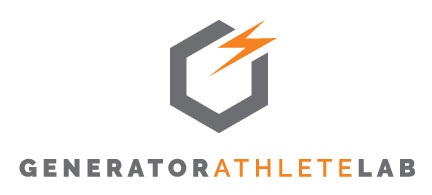How to Speed Up Muscle Strain Recovery: Effective Tips and Expert Support
Muscle strains can happen to anyone, from athletes to those performing routine tasks. Recovering effectively and efficiently is essential to getting back to normal activities without discomfort or risk of further injury. If you’re wondering how to speed up muscle strain recovery, Generator Athlete Lab in Austin, TX, offers tailored recovery services to help reduce pain, improve mobility, and accelerate healing.
Understanding Muscle Strain: Causes and Symptoms
A muscle strain occurs when a muscle is overstretched or torn, often resulting from sudden twisting, overexertion, or poor form during physical activity. These injuries range from mild strains that cause discomfort to severe strains requiring more intensive recovery.
Common Causes of Muscle Strain
Lifting heavy objects without proper technique.
Overuse during repetitive motions, such as running or weightlifting.
Sudden, sharp movements or slips.
Symptoms of Muscle Strain
Muscle pain and tenderness in the injured area.
Swelling and inflammation.
Muscle spasms or cramping.
Limited mobility or stiffness in the affected muscle.
Strains can occur in various parts of the body, including:
Lower back muscle strain, which often results from lifting or poor posture.
Hamstring muscle strain, common in runners and athletes.
Abdominal muscle strain or intercostal muscle strain, which may cause shallow breathing and difficulty moving.
Proven Strategies to Speed Up Muscle Recovery
Recovering from a muscle strain involves a combination of immediate care and long-term strategies to restore function and prevent re-injury.
Immediate Action Steps
Apply Ice: Use an ice pack on the injured muscle for 15–20 minutes every few hours to reduce swelling.
Rest and Elevate: Minimize strain on the muscle by avoiding physical activity and elevating the injured area to reduce inflammation.
Compression: Wrap the affected area with a compression bandage to provide support and reduce swelling.
The Role of Physical Therapy
Physical therapy is essential for restoring strength and mobility. A physical therapist can guide you through targeted exercises to address specific strains, such as:
Core strengthening for strained abdominal muscles.
Gentle stretching for back muscle strain to prevent stiffness.
Targeted therapy not only accelerates recovery but also helps prevent future injuries by improving overall muscle resilience.
Gentle Physical Activity
While rest is critical, complete inactivity can lead to stiffness and delayed recovery. Incorporating light exercises, such as stretching and low-impact movements, can improve blood flow to sore muscles and enhance healing.
Recovery Services at Generator Athlete Lab
At Generator Athlete Lab, we offer specialized services designed to optimize recovery and support muscle strain recovery for various types of injuries.
Personalized Recovery Plans
Our team creates customized recovery plans tailored to your specific needs. Whether you’re dealing with a pulled muscle, calf muscle strain, or external intercostals injury, we’ll design a program that aligns with your recovery goals.
Advanced Recovery Techniques
Cryotherapy and infrared sauna sessions: These therapies soothe sore muscles, reduce swelling, and promote relaxation in the injured area.
Normatec Compression Therapy: This technique improves circulation and speeds up healing by flushing out toxins and reducing inflammation.
Expert Guidance
Our experienced therapists work closely with clients to develop recovery strategies for injuries ranging from pulled abdominal muscle to overuse-related strains. With their expertise, you can feel confident in your recovery process.
When to Seek Professional Help
While many muscle strains heal with proper care, certain symptoms indicate the need for professional assistance:
Persistent muscle spasms or severe pain that doesn’t improve with home remedies.
Signs of complications, such as difficulty breathing or limited mobility in core muscles.
Potential underlying issues, like lyme disease or other health conditions.
Tips to Prevent Muscle Strains in the Future
Prevention is always better than cure. Incorporate these strategies into your routine to reduce the risk of muscle strains:
Warm-Up and Stretching
Always warm up before engaging in physical activity. Stretching your upper body, core muscles, and legs prepares your muscles for movement and reduces the likelihood of injury.
Proper Technique
Whether lifting weights or performing daily tasks, focus on maintaining proper form to avoid overexertion. Use controlled movements to prevent unnecessary strain on vulnerable areas like the lower back or hamstrings.
Consistent Strength Training
Strengthen key muscle groups to enhance endurance and resilience. Training your core muscles and other frequently used muscle groups can help you avoid overuse injuries.
How to Book Recovery Services in Austin
Getting professional support for your muscle recovery is simple. At Generator Athlete Lab, we offer a seamless booking process:
Visit our website or call to schedule an appointment.
Choose from a variety of recovery options tailored to your needs.
Start your journey to faster recovery with expert guidance.
Click here to book your personalized recovery program.
Recover Faster with Expert Care
Muscle strain recovery doesn’t have to be a long, frustrating process. With the right strategies and professional support, you can heal effectively and return to your regular activities sooner. Generator Athlete Lab in Austin, TX, is dedicated to providing science-backed solutions to help you recover quickly and safely.
Whether you’re dealing with a hamstring muscle strain, lower back muscle strain, or other injuries, our advanced services and personalized care plans are here to support you. Find out how to speed up muscle strain recovery and take the first step toward a healthier, pain-free future.

